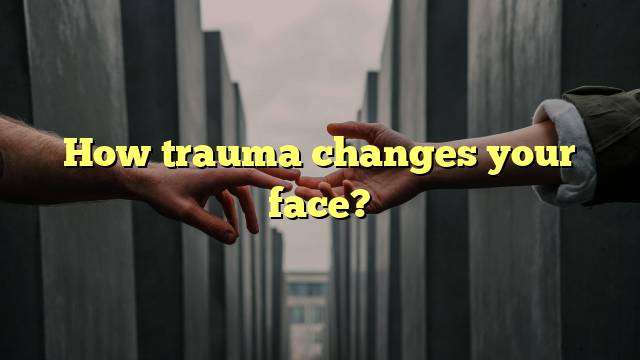How Trauma Changes Your Face?
Trauma can have a significant impact on your physical appearance, and not just in terms of the visible injuries that occur when a person is in an accident or suffers a violent attack. Even less visible forms of trauma, such as emotional or psychological trauma, can cause changes to the face that are noticeable to those around you.
Facial Aging
Symptoms of facial aging and trauma can range from wrinkled, drooping skin to injuries that cause pain and interfere with sight, smell, speech and breathing. Symptoms of aging skin can include:
- Fine lines and wrinkles
- Loss of skin elasticity
- Thinning of the skin
- Darker spots
- Dry skin
- Sagging of the skin
These signs of aging can be caused by a variety of factors, including environmental factors such as sun exposure, smoking, and stress. Aging is also the result of a natural process, as our skin loses its ability to maintain its elasticity and moisture.
Trauma and Facial Injury
In addition to the aging process, trauma and facial injuries can also cause changes to the face. These changes can range from scars to paralysis, as well as changes in facial features such as a drooping eyelid or an asymmetrical face.
Trauma can also cause changes in facial skin tone and texture, as well as changes in the underlying bones and cartilage of the face. In some cases, trauma can even cause changes in the shape of the face, such as a flattened nose or a flattened cheekbone.
The Emotional Impact of Facial Trauma
The emotional impact of facial trauma can be significant, as it can cause a person to feel self-conscious and anxious about how others perceive them. It can also lead to depression and a lack of self-esteem. In some cases, facial trauma can even lead to post-traumatic stress disorder (PTSD).
It is important to seek help from a professional if you are experiencing any of these symptoms. A mental health professional can help you to understand and cope with the emotional impact of facial trauma, as well as provide strategies to help you manage your feelings.
Treatment for Facial Trauma
Treatment for facial trauma depends on the type and severity of the trauma. In some cases, surgery may be necessary to repair facial features that have been damaged. In other cases, non-surgical treatments such as laser treatments, fillers, and injectables may be used to help improve the appearance of the face.
It is important to speak to a qualified medical professional about the best treatment for your individual needs. They will be able to provide you with the appropriate advice and treatment options to help you achieve the best results.
Conclusion
Trauma can have a significant impact on the face, causing both physical and emotional changes. It is important to seek help from a qualified medical professional to ensure that you are getting the best possible treatment for your individual needs. With the right treatment and support, it is possible to manage the changes caused by facial trauma and regain a sense of self-confidence.



